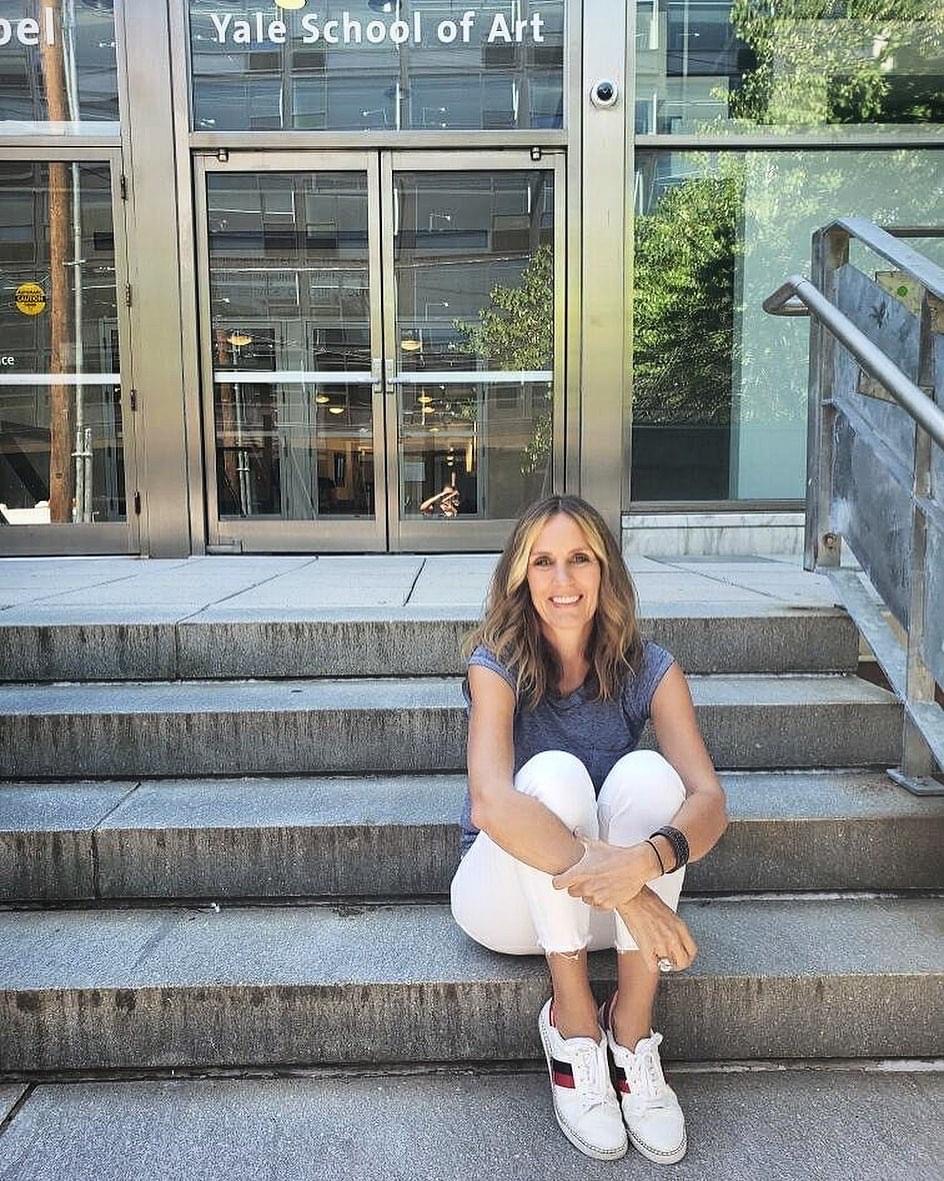
Courtesy of Allison Minto
In April, photographer Danna Singer ART ’17 won a Guggenheim Fellowship, which offers grants to artists and intellectuals in order to enable a year of scholarship or artistic production. Singer planned to use her grant to drive around the United States and photograph “transient spaces” like motels to represent the struggles of America’s working poor.
Not only did she continue her trip despite COVID-19, but if it weren’t for the pandemic, Singer would not be teaching “Photographic Storytelling” this semester.
Singer has redefined remote work. She teaches her class from wherever she happens to be — her car, a lake, the side of the road or even a Starbucks parking lot — and shows her students the process of telling a story through photographs as she embarks on a mission to do so.
“We are all working on something together,” Singer said. “I can relay my struggles and successes and be available in a way that is different from a classroom setting.”
Singer is an accomplished photographer. This year, Singer’s work was published in the New York Times Magazine on Sept. 11 and in the New Yorker on April 2. Her photographs have appeared in exhibitions around the world.
According to Vy Tran ’21, a student in her class, Singer approaches teaching not by bestowing her knowledge but by encouraging sharing and understanding. The virtual room brings together students and auditors in different locations and from varying photography backgrounds, and Singer emphasizes the importance of each individual contribution.
“It’s a community of people and a community of photographers,” Singer said.
During Tuesday’s class, Singer shared some of the struggles she experienced this week while taking pictures. The class discussed the anxiety associated with asking to take pictures of strangers.
“Hopefully, the students will feel less alone in that struggle the next time they approach a stranger, and their interactions will result in greater connections and pictures,” Singer said.
Tran commented on Singer’s ability to be open and vulnerable with her students. Last week, each of the course’s students brought a photograph they wish they had made. Tran, who is not an art major, appreciated Singer and teaching assistant Dylan Hausthor ART ’21 listening to each student’s interests and recommending artists accordingly.
“It shows that the ongoing process of art itself is like a very shared and welcome community,” Tran said.
Singer agreed. “The great thing about photography is that most art has similar concerns, right?”
Singer appreciates the locational freedom of online learning in other ways as well. Singer said when there is no longer the structure of a physical classroom, “there’s something about a Zoom atmosphere that makes the conversation more relaxed.”
“It’s very grounding … because it’s not like a professor in a classroom teaching and lecturing in front of a camera on Zoom,” said Tran. “It’s more of a person who is doing photography teaching us how she does it and showing us things that she really likes looking at and learning about.”
Even so, Hausthor worries that once the class begins “crit” — critique sessions in which students’ photos will be formally evaluated by everyone in the virtual room — the lack of physicality in the photographs may remove a dimension of a photograph’s impact.
Throughout the course, students will explore questions implicated in photographic storytelling: How does photography present truth? Should it present truth? Can it?
Hausthor emphasized the need to be intentional about the types of images the class discusses because storytelling can be complex and political. “We have to sit in that discomfort to get something,” he said.
Tran agreed, citing the history of photography as a white and male-centric discipline. Singer also noted the subjectivity of a photographer’s eye.
“Some photographs are posited as truths because they are made in a certain way,” Singer said. “When you’re framing something, you’re privileging one thing over the next, so truth-telling has been filtered through the eye of the photographer.”
This course was first taught in fall 2019 under the title “Introduction to Visual Storytelling.”
Phoebe Liu | phoebe.liu@yale.edu







